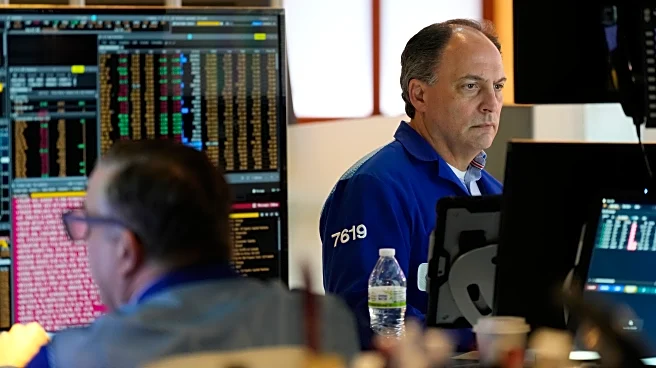What's Happening?
The Paris Agreement, established a decade ago, aimed to slow global warming by reducing carbon emissions. However, recent reports indicate that the world has not adhered to the agreement's goals, with climate change accelerating faster than anticipated.
Despite some progress, such as the increased use of renewable energy and a reduction in carbon emissions by several developed countries, the overall pace of change is insufficient. The planet's temperature has risen significantly, leading to more extreme weather events and environmental challenges. The upcoming United Nations climate negotiations in Belem, Brazil, will focus on addressing these issues and finding ways to accelerate efforts to combat climate change.
Why It's Important?
The slow progress in meeting the Paris Agreement's goals has significant implications for global climate policy and environmental sustainability. The continued rise in global temperatures and extreme weather events pose risks to ecosystems, economies, and human health. The disparity in emissions reductions between developed and developing countries highlights the need for equitable climate solutions. The upcoming climate negotiations present an opportunity for countries to reassess their commitments and implement more effective strategies to mitigate climate change. Failure to act decisively could lead to irreversible damage to the planet and exacerbate social and economic inequalities.
What's Next?
Diplomats and climate leaders will convene in Belem, Brazil, for the United Nations climate negotiations, where they will discuss strategies to enhance global efforts to combat climate change. The focus will be on accelerating the transition to renewable energy, improving emissions reduction targets, and addressing the financial and technological needs of developing countries. Stakeholders, including governments, businesses, and civil society groups, are expected to push for more ambitious commitments and actions to close the gap between current progress and the Paris Agreement's goals. The outcome of these negotiations could shape the future of global climate policy and determine the effectiveness of international cooperation in addressing climate change.
Beyond the Headlines
The slow progress in meeting the Paris Agreement's goals raises ethical and legal questions about the responsibility of nations to protect the environment and future generations. The increasing frequency and severity of climate-related disasters highlight the urgent need for comprehensive climate adaptation and resilience strategies. The negotiations in Belem may also address the role of technology and innovation in driving sustainable development and reducing emissions. Long-term shifts in energy production, consumption patterns, and international cooperation could be triggered by the outcomes of these discussions, influencing global climate policy for years to come.
















